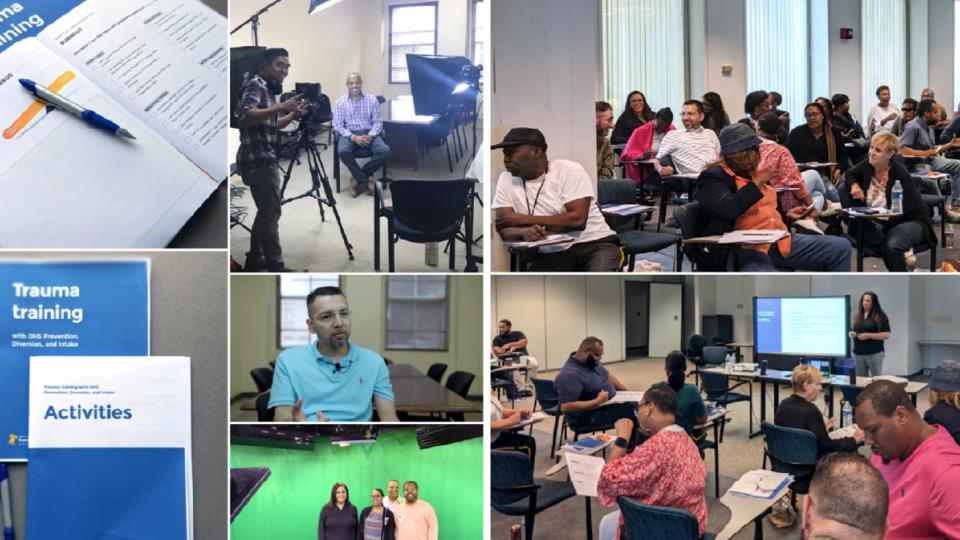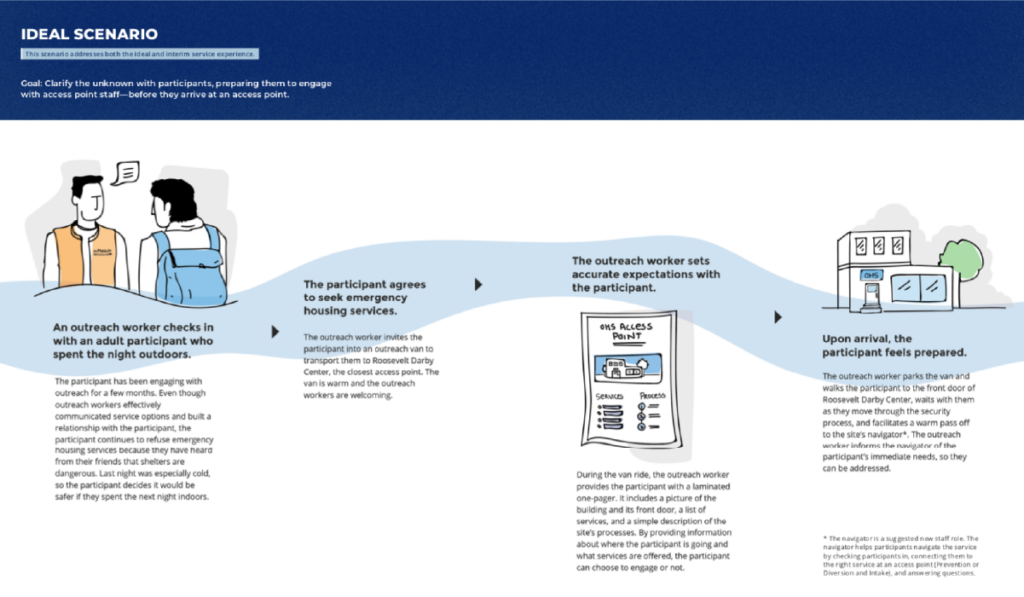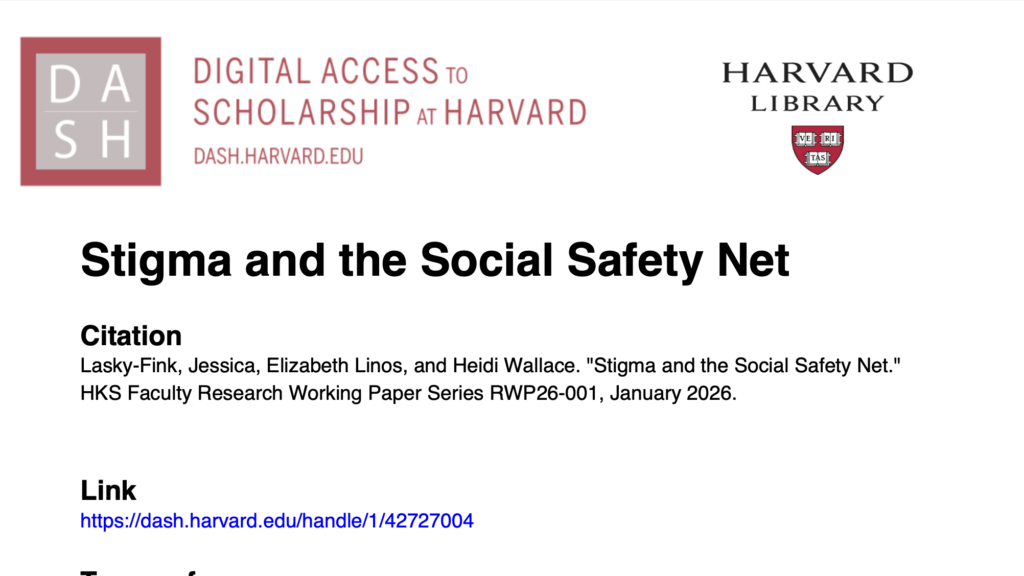Project Snapshot: Trauma-Informed Homelessness Service Interactions and Strategy
The report highlights a project to improve the Philadelphia Office of Homeless Services’ (OHS) prevention and intake processes by implementing trauma-informed practices. In collaboration with staff, participants, and trauma experts, the project aimed to reduce distress for those accessing services while equipping staff with tools and training to better manage trauma-related interactions, creating a more supportive and empathetic service environment.

Problem Statement
When accessing the Office of Homelessness (OHS) prevention, diversion, and intake service, Philadelphians must go through many opaque steps and processes—often while in crisis or experiencing a traumatic event. Navigating confusing processes and paperwork can exacerbate feelings of distress or trauma. When delivering the service, staff also follow specific processes, offer information, and coordinate support while taking in difficult stories and daily stressors. These lived realities require adopting a trauma-informed approach to service delivery.
Project Description
The project aimed to co-create a future-state service experience where staff and participants could engage with each other in more trauma-informed ways across the OHS prevention, diversion, and intake service.
With advice from Dr. Meagan Corrado, a trauma expert, and in collaboration with participants, staff, advocates, and leaders, the team defined an ideal, trauma-informed service experience.
This included: – A future-state map for how the key moments in the process could be adjusted to be more trauma-informed. – Detailed scenarios illustrating how trauma-informed principles could be applied to on-the-ground interactions between staff and participants. – Staff trauma training modules and sessions designed and facilitated by Dr. Corrado in collaboration with OHS staff and the PHL Service Design Studio. A “train the trainer” guide was also developed to ensure training would be embedded within OHS’s already-established training program and be sustained beyond the project.
The project aimed to develop a holistic strategy illustrating what trauma-informed service delivery would look like in practice for the OHS prevention, diversion, and intake service. Through a participatory design process with over 200 stakeholders—and under the advice of Dr. Corrado––the team arrived at a collective vision. This vision and strategy would guide all project output and future decision making.
Project Outcomes and Impact
The scenarios the PHL Service Design Studio developed equipped OHS with detailed information on how they could implement trauma-informed interactions. Through training, OHS staff were able to understand trauma and its connection to homelessness, build deescalation skills, reflect on the impact of work on their wellbeing, and create personalized self-care plans. Ultimately, the goal of trauma-informed services is to leave people better off after they engage with the service system.
Replicable Takeaways
Staff who are supported can in turn better support others while taking care of their wellbeing. Implementing trauma-informed practices also means that staff should be equipped with the knowledge, tools, techniques, and organizational support. By collaborating with people experiencing homelessness, City staff and leaders, nonprofit service partners, and trauma practitioners across the system, the project also emphasized the importance of centering lived experience of those most impacted in the design and decision-making process.



